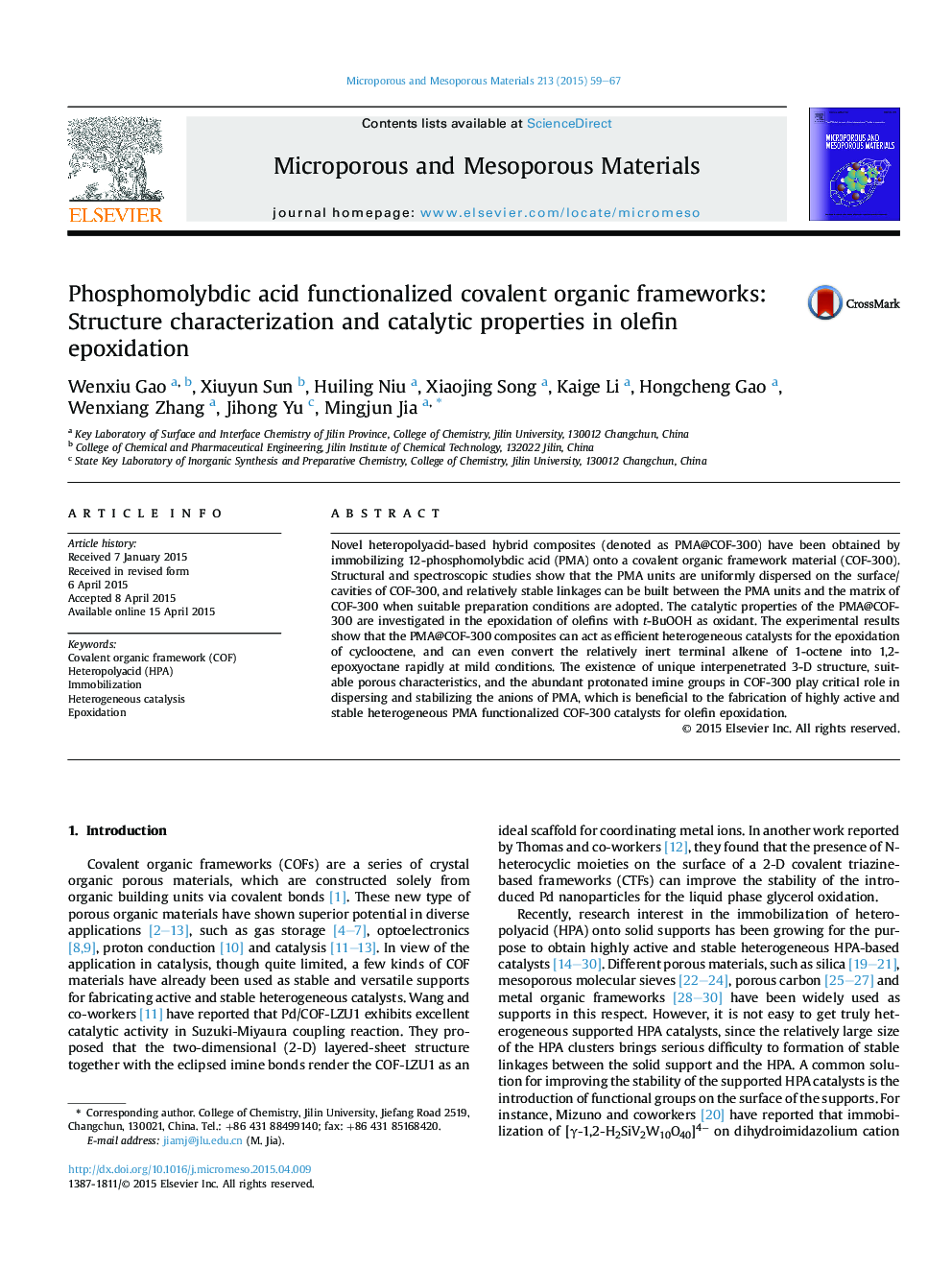| Article ID | Journal | Published Year | Pages | File Type |
|---|---|---|---|---|
| 72511 | Microporous and Mesoporous Materials | 2015 | 9 Pages |
•PMA@COF-300 was prepared by immobilizing 12-phosphomolybdic acid onto COF-300.•The PMA units are uniformly dispersed on the surface/cavities of COF-300.•Electrostatic interaction is present between the PMA units and COF-300 framework.•PMA@COF-300 is efficient heterogeneous catalyst for the epoxidation of olefins.
Novel heteropolyacid-based hybrid composites (denoted as PMA@COF-300) have been obtained by immobilizing 12-phosphomolybdic acid (PMA) onto a covalent organic framework material (COF-300). Structural and spectroscopic studies show that the PMA units are uniformly dispersed on the surface/cavities of COF-300, and relatively stable linkages can be built between the PMA units and the matrix of COF-300 when suitable preparation conditions are adopted. The catalytic properties of the PMA@COF-300 are investigated in the epoxidation of olefins with t-BuOOH as oxidant. The experimental results show that the PMA@COF-300 composites can act as efficient heterogeneous catalysts for the epoxidation of cyclooctene, and can even convert the relatively inert terminal alkene of 1-octene into 1,2-epoxyoctane rapidly at mild conditions. The existence of unique interpenetrated 3-D structure, suitable porous characteristics, and the abundant protonated imine groups in COF-300 play critical role in dispersing and stabilizing the anions of PMA, which is beneficial to the fabrication of highly active and stable heterogeneous PMA functionalized COF-300 catalysts for olefin epoxidation.
Graphical abstractFigure optionsDownload full-size imageDownload as PowerPoint slide
